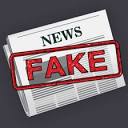
(LFC Comments: Thanks to a Concord Lobbyist for this article on the state of journalism in our world. We all realize that the world of journalism is changing drastically. In our opinion, many “journalists” became radical leftists and promoted an agenda without any regard to the truth. Investigative journalism was tossed aside, and they have reaped what they have sown. Quite frankly, after reading and seeing the beliefs of journalism stalwarts, such as Walter Cronkite, we question if we were ever getting the truth without a hidden agenda attached. Our answer – question everything.)
*********************1776
From the Yahoo Morning Brief
Saturday, Apr 18
Of all the businesses decimated by the coronavirus; cruise ships, hotels, restaurants, etc, the damage done to media companies may be somewhat less obvious. But make no mistake, a wrecking ball is being taken to the media with devastating consequences.
It’s almost impossible to list off all the news organizations that are hurting, closing or firing people right now, (the New York Times did a recent sampling), but suffice it to say that pain is being felt in every outlet, except for a select few (which I will get to.)
That the news media is getting battered shouldn’t surprise anyone. The economic fallout from the pandemic is like a virus itself, in that it most severely affects those with compromised health. If elderly people with weak respiratory systems are more susceptible to COVID-19, then weak, leveraged or speculative businesses are most vulnerable to the resulting economic aftershock.
Any number of media companies have those characteristics and they’re now in
harm’s way. “You can see for companies that are already struggling how much more this
hurts them,” says Ken Doctor, a news industry analyst who writes for Harvard’s Nieman Lab and is the author of “Newsonomics: Twelve New Trends That Will Shape the News You Get.” “They’re profitable but not nearly as profitable as they used to be. They’ve been losing ad revenue, then COVID comes along. It’s like a storm that’s accelerating huge change in the industry immediately.”
Paradoxically demand for news is off the charts. People desperately want to know about all facets of the pandemic—a never-before-experienced phenomenon—plus they have more time, working from home or being jobless.
Readership and viewership actually doubled at some properties in March But here’s the rub. Marketers won’t place their ads next to the endless parade of horrific coronavirus stories. (That’s what happens when the news turns bad —like in the wake of 9/11 for instance.) Plus, millions of businesses that would be advertising right now are shuttered, bankrupt or slashing marketing budgets. (Sports advertising for instance has gone to zero.)
So while audience numbers are soaring, ad numbers are plunging. Advertising is the problem, which is nothing new. It’s just worse now. When my former boss at Time Inc., John Huey, told me he was retiring eight years ago I asked him what he was going to do next. “I don’t know,” he told me. “But whatever it is, I won’t be going into anything ad-supported. Advertising is a terrible business.”
Exhibit A is Gannett, publisher of USA Today and hundreds of other papers, including the Detroit Free Press, The Arizona Republic, The Indianapolis Star and Milwaukee Journal Sentinel. Gannett’s stock has fallen from a 52-week high of $11 to a recent low of 63 cents, giving it a market cap of some $88 million, around half of what Jeff Bezos (owner of the Washington Post of course) recently paid for a house in LA. Gannett has been on a downward trajectory for years. (It’s in the newspaper business for Pete’s sake.) But some of its wounds were self-inflicted; like not building its digital business fast enough, or big enough given its footprint (140 million MAUs), or figuring out how to garner meaningful subscription revenue. One insider told me about a misguided strategy to scale up its digital footprint to compete with Google and Facebook (um, fail) and absentee management.
As conditions worsened the company started wheeling and dealing, splitting off TV stations, buying more papers, trying to buy others including Tribune, fending off a takeover, then ultimately selling out to another media company, (operated by Fortress which is owned by SoftBank) which then assumed the Gannett name. That latter deal was financed by one of Wall Street’s darkest princes, Leon Black and his Apollo Group, to which Gannett must repay a $1.8 billion loan with a coupon of 11.5%. (Gulp.) Now the coronavirus hits and advertising drops 30%. Oh and one of the big places that USA Today isdistributed? Hotels.
“There’s pressure [for Gannett] to turn a profit, pay dividends, and pay off the debt,” says Doctor. “To have cash flow suddenly eviscerated like that is a major problem.” Try an existential problem. On the one hand Gannett has now become merely a vehicle for the most reptilian of American businesses, Wall Street asset strippers.
On the other hand it is still a vital source of local journalism, never mind a workplace, still, for thousands of reporters and editors. Please take a look at this long, long list of
papers Gannett runs. “Some of these newsrooms literally have just two or three
people now,” the insider told me. “It’s just so sad.”
By the way, remember when Warren Buffett sold his stake in Lee Enterprises, a publisher of regional papers, back in January? That’s looking smarter by the day as Lee has now announced pay cuts and furloughs. Certainly the value of that business has declined. And here’s another small one: Think about airline magazines in this environment. They’ve been grounded (forgive me) or worse. Delta’s Sky magazine has reportedly ceased publication.
OK that’s newspapers and print, you say. Of course they’re going down, but
digital’s holding up OK, right? Wrong.
Digital advertising has also been whacked. A survey of top ad executives by UBS shows that ad spending in digital is down over 45% year to date and is expected to drop by that same amount for the rest of the year. Why? Mostly because digital buying is done more real-time than other categories, so an ad executive can pull the plug on an ad program with a few keystrokes.
And so as BuzzFeed was writing “The Coronavirus Is A Media Extinction Event” this week, the company was informing its employees that it wouldn’t be profitable this year as anticipated, and was instituting pay cuts. (In more bad news, Variety reported that Twitter “has pulled funding for BuzzFeed’s “AM to DM” weekday morning news and pop-culture show on the social platform.”)
Also remember that a good number of digital media sites are venture-backed or leveraged endeavors predicted on rosy sales projections. In recent days Gizmodo, Jezebel, The Onion, Deadpsin, The Dodo, NowThis, Vox, Vice, Bustle, Nylon, Romper, and The Athletic reportedly have or will cut jobs and/or pay. And of course that’s just a partial list.
On top of all this Amazon has just seen fit to cut commissions for media companies’ affiliate links, (which are programs that would link, say a media company’s tech buying guide, to Amazon for purchases.) “Traditionally we see Amazon represents as much as 70% or 80% of all affiliate revenue. When they cut rates, it’s dramatic,” says Shirley Chen, CEO of Narrativ, a company that competes with Amazon by providing publishers with technology to send readers to retailers through links embedded in articles.
Consumer revenue (i.e. paywalls and subscription), it should be noted, has been a bright spot for media companies both old, like The New York Times, and new, like The Information. (It should also be noted that my news organization Yahoo Finance, and its parent company, Verizon Media Group, are both primarily ad-supported and have been slow to adopt consumer revenue models.) “Making that existential shift to consumer revenue is very hard,” says Tom Rosenstiel, the executive director of the American Press
Institute, a nonprofit organization that helps news companies develop sustainable business models. “Local news organizations have struggled inparticular with this, and it’s a failure.”
Besides print and digital, another way news organizations have been making money is conferences. My previous employer, Fortune, (I was the editor there from 2006 to 2014), had been successful doing that, so much that it had become a key driver of the business. For now though, in-person conferences are out. This week Fortune laid off 35 people.
No wonder journalists are stressed out. Some though, are doing more than
squeezing rubber balls.
Paige Cornwell, a reporter at the Seattle Times organized a GoFundMe page for furloughed journalists that had raised $56,512 as of Wednesday. “This fund really shows that people want to personally support journalists,” she says. “They don’t want to support journalism companies, hedge funds, and massive media conglomerates. They want to support the people on the ground.”
In his kickoff piece as the new media columnist for the New York Times, former BuzzFeed editor Ben Smith wrote about how the news business, which once seemed to be fragmenting into a thousand profitable little pieces, was in fact reconsolidating. And that his new employer, a 98-pound weakling a decade ago, had now become a 300-pound gorilla. Other big animals will survive too. In fact, Dow Jones, NBC, the Washington Post and their ilk will likely do just fine in the time of coronavirus and may emerge from it even stronger.
Another more sinister element will also doubtless do just fine, that being, the business of fake news—like those that are right now posting unconscionable lies about Bill Gates creating the coronavirus and profiting from it.
As for journalism’s middle class; local news, startups, niche digital publications, many will be washed away. I know it’s been asked before, but it’s never been a more salient question: ‘Who will cover the school board, local elections, and state bidding for contracts?’
Somewhere out there liars, rogues and crooked politicians are licking their chops.
So right now, when we need news the most, we’re increasingly served by either big kahuna companies or fake news mills. A world where the latter have an ever-increasing market share sounds like an information dystopia. But make no mistake, big media companies holding more sway is problematic too. While many do excellent work, they have their blind spots. Diverse opinions and many do excellent work, they have their blind spots. Diverse opinions and sources of information are fundamental to our society.
But even the big boys and news fakers may not be sitting so pretty soon. According to a NiemanLab story this week based on Taboola Newsroom data, the coronavirus news boom is already beginning to wane. At some point the smoke will clear and we’ll be back to a normal news volume. And there’ll be far fewer news organizations and journalists to tell us what’s really going on.
Commentary by Andy Serwer, editor-in-chief Follow him at @serwer
Categories: Free Speech Zone, Uncategorized


Leave a Reply
You must be logged in to post a comment.